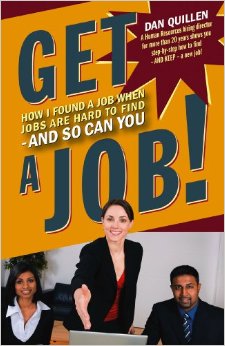This blog, in a slightly different format, was originally posted on LocalWork.com
Of all the groups affected by the weak job market, perhaps none has experienced more difficulty than the Mature Worker, those age 50 or older. In many cases, Mature Workers have had long work histories with a single company, and find themselves conducting a job search for the first time in years. Many, after months of unsuccessfully submitting hundreds of applications, have given up, forced into early retirement because they cannot find employment.
This has lead to the belief of rampant age discrimination, that employers illegally overlook older job seekers.
I contend, however, the problem is not that Mature Workers are older, but that they ACT older, by conducting a job search in a way that, true or false, suggests they are out of touch with the needs of employers and their customers.
In short, many Mature Workers are conducting a 2015 job search with 2010 or earlier job search strategies, and it is not working.
Here are tips for job seekers of any age to update your job search:
1. Seek help
Job search strategies that worked before do not work today. Seek out advice with your County or City Workforce Connection. Use the career services at your university or local community college. Visit a non-profit career center, or consider consulting with a career coach. We are all here to help.
2. Create a new resume
Age-proof your resume by deleting the Objective Statement and the phrase, “References available upon request.” Include a highly focused Summary of Qualifications. Go back only about 10 years in your work history, and emphasize achievements.
3. Consider additional training
Perhaps you spent years in the same position with the same company. Or, your occupation is dying (good-bye, typewriter repair industry). Or, your computer skills are weak. Consider short-term vocational training. In some cases, with as little as a few hours, you can earn a certification that will make you more competitive in a new occupation. Check with your local Workforce Center.
4. Be found online
Google your name. What do you find? The only thing worse than a negative online presence is having no presence at all, which suggests to employers that you are out of touch with today’s market. Get on LinkedIn, and make sure your account is current. Start a blog. Leave comments (preferably relevant to your industry, positive, and constructive!).
5. Get offline
For every position posted on a job board, employers receive, on average, 250 applications. The chance of getting hired based on an application is less than 0.5%. Basically, you are playing the lottery. To be sure, you need to apply for positions online, and job boards can help identify opportunities, but to have the best chance of job search success, you should do most of your searching offline.
6. Meet more people
Hiring decision makers prefer to make decisions based on the recommendations and referrals of people they already know. Your strategy, then, is to know someone who can make a recommendation or referral for you. Make sure everyone you know, knows what you are looking for. And then, go meet more people. Go to job fairs and hiring events. Attend trade associations and conferences. Chat up the person ahead or behind you in line for coffee. The cliché is true: you never know where your next opportunity will turn up.
7. Don’t give up
Job search is discouraging, demoralizing, demeaning. You will have bad days, and you will face a lot of rejection. But you only need one Yes. If what you are doing isn’t working, then try something new. Keep at it, and one day, maybe not when or where or how you expected, you will find success.






